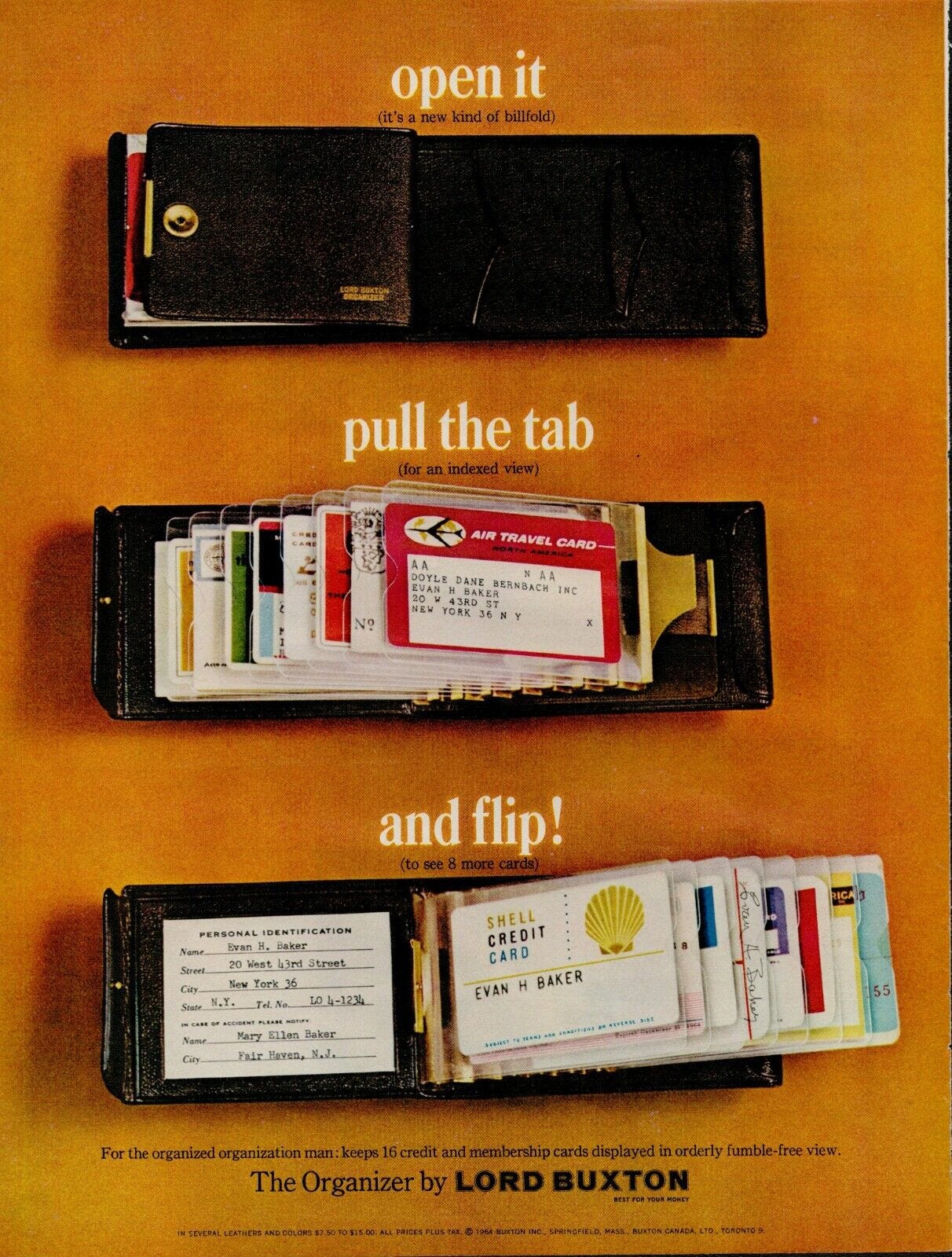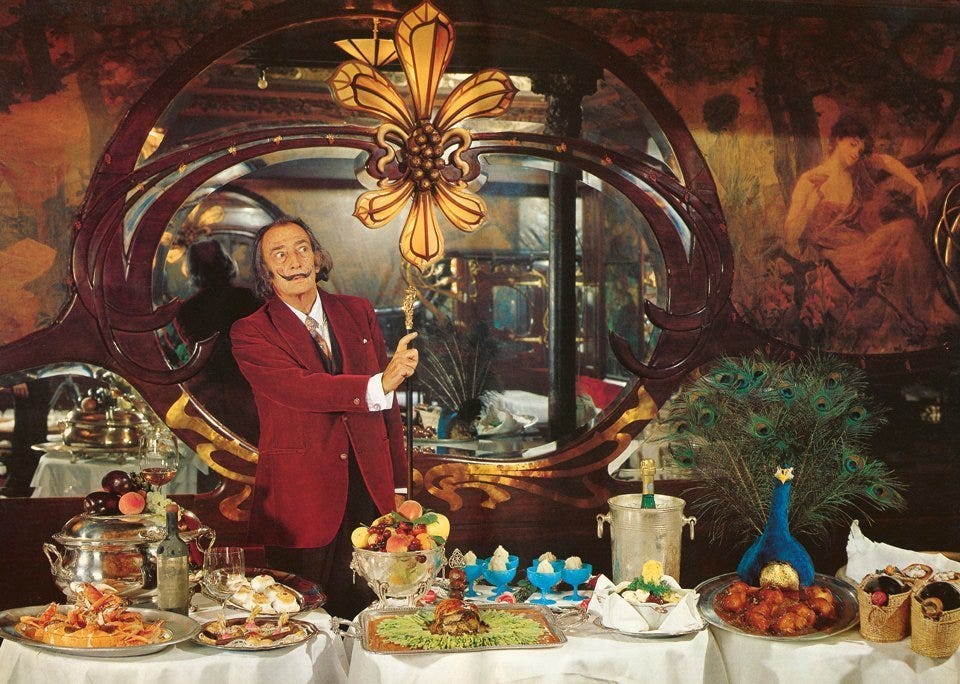The Crypto Wallet as One’s Identity Graph
Identity is a tricky thing, and it always has been
It is interesting to note that the wallet as we historically know it — that is, a physical object, approximately flat, designed to hold cash, cards, and other items roughly 3” x 2” in size — was invented concurrently with paper money, almost 350 years ago. Another 200 years would elapse before the object itself became a fashion curiosity, wallets initially being more purpose built. Although the literal size of one’s wallet, and what that projected about one’s status and wealth, has been a focal point from the get…
We have identity on the mind this week. The other day while listening to The Verve's "Bittersweet Symphony," I was struck by Richard Ashcroft shouting the seminal 90s anthem’s seminal verse: "I'm a million different people from one day to the next." This is, of course, true of everyone. As much as we'd love to believe it, character isn't fixed. We're different at work than we are at home and different still at the bar, restaurant, game, or wherever it is we choose to socialize on any given day. Humans are complex, after all, and not only do we shape-shift, but we need to constantly project these various identities we inhabit. The books on display in one’s videoconferencing background; how we curate our music playlists, spice racks, and laptop case stickers. Another example still, and relevant and fun: consider a hard-earned collection of matchbooks, the ultimate statement of one’s bonafides as an urban explorer. Indeed, we crave repositories of our different selves.
And, so, consider the crypto wallet, a crude, by-engineers-for-engineers type of product as it exists today, but a key technical building block, if we are ever to be able to prune and partition our digital identities in the way we so deeply crave to. Crypto wallets so far are weird, complicated, and often nausea-inducing for how little control and ownership of their contents they can seem to bestow on their owners. But someday they will be repositories of our various identities, and because individuals will own them digitally and completely, we will be able to build and curate around them, as well as experience the world through this identity graph.
Wallets as Social Currency
Speaking of graphs, it has been widely noted that the social graph has made way for the interest graph. As Li Jin, a partner at Variant Fund and investor in Blackbird, has pointed out, 2023 could well see the rise of decentralized social thanks to the power of a crypto-powered interest graph:
“The next big thing in 2023 is decentralized social networking. We're finally beginning to see users waking up en masse to the risks of centralized social networking companies, not least catalyzed by the recent threatened ban of TikTok and Twitter's capricious suspensions and prohibiting linking out to other platforms. Users, creators, and businesses have realized that it's dangerous to invest in building an audience on these platforms when there's a looming risk that the rug gets pulled out from under them. We're at a moment where there is a collective sense of ‘We’ve lived with the existing paradigm of closed social platforms for 15 years. What comes next?’ I think we'll see a decentralized social network start to gain steam in the next year that allows users to own their social graph and content and port it across various applications. We'll also see more creators experimenting with web3 tools that allow them to reach their audience in a platform-less way, i.e. through tokens acting as a new kind of social graph.”
If we think about how Li Jin’s prediction works at the intersection of the physical and digital worlds — say, to use a random example, the modern restaurant — then what we are really talking about is the crypto wallet as one’s identity graph. To be sure, the most successful NFT projects have been PFPs like CryptoPunks, proving that there's a strong appetite for using NFTs as avatars for your online identity — for wanting your crypto wallet to say something definitive about you. This used to be a wallet, with your Blockbuster card, your family photos, and a punch card for Jamba Juice. It’s exhilarating to think that we can reclaim some of what we lost in the web2 era to Facebook logins and Square terminals.

You Are What You Eat
They say you are what you eat, but maybe — especially in cities like New York — that old adage should be tweaked to read: you are where you eat. In her short story “Son of Friedman,” the novelist Emma Cline describes the past-his-prime central character as eating at a dated restaurant where, “the food was not very good. Big steaks, creamed vegetables, drizzles of raspberry coulis over everything, all the food you ate back then because caring about what you ate wasn’t yet part of having money.” Despite the inherent cynicism of such a devastating line, it’s an accurate take — where we eat serves as a cultural signifier; a piece of ourselves we present to the world. In many cases, restaurants are now the new clubs, and in this current nightlife paradigm there's nothing more clout-affirming than dining at a place that's fully booked out three to six months in advance. But, to what end do you share this? Yes, you can post a pic of your rainbow empanadas on Instagram, or do one of those voice-over videos on TikTok detailing your entire meal and how hard it "slaps," but all that amounts to no more than a flex, and as we've learned flexing on social quickly becomes a turnoff.
What's more interesting is to consider the existing and future platforms, Blackbird chiefly among them, that will allow you to connect with restaurants and fellow diners alike in more meaningful and ongoing ways. Operators will be able to see how many times you’ve been to their establishment before, but, also, where else you’ve been and what it’s going to take to get a 5-star review out of you. This data today is both silo’d and, in fact, not actually in the end-user’s control. A dining digital wallet may become equally useful across other services, such as solving the cold-start problem we face when traveling to a new destination or, even, in a dating app.
Thinking again of the bellwether that is the music biz, I often wonder why Spotify — despite its ubiquity and the almost insidious way it has inserted itself into our lives — serves users such a solitary experience. Aside from making playlists for friends and would be romantic partners or texting a track to someone, the bulk of our activity on the platform seems limited to looking up music or discovering new artists via its spookily accurate algorithm. Why can't we give props to someone for what they’re listening to? How can users showcase their taste? For someone who remembers pouring through the pages of friends' Case Logic CD books to peruse their carefully arranged music collections, I'm amazed that Spotify hardly allows users to lean on their Starred tracks and other playlists as cultural signifiers.
Blackbird will do better around one’s restaurant wallet, one’s food-based identity. We certainly don’t want the next generation of dining applications to become ensnared in the trap of silos, and with decentralized social and the ready availability of the crypto wallet-powered identity graph they most likely won’t be. Food is culture, it's community, it's passion, and it's exciting to imagine the deepening and illuminating ways in which we'll engage each other — through niche social platforms, token-gated communities, and our personalized selves — as we all build the next layer of the Internet, and of the dining ecosystem as well.
James Jung
VP, Content
Blackbird Labs, Inc.
Thanks for reading! Blackbird will launch in select restaurants later this year. In the meantime, if you dug this, please give it a like! We’re also on Twitter and would love to hear from you there.





